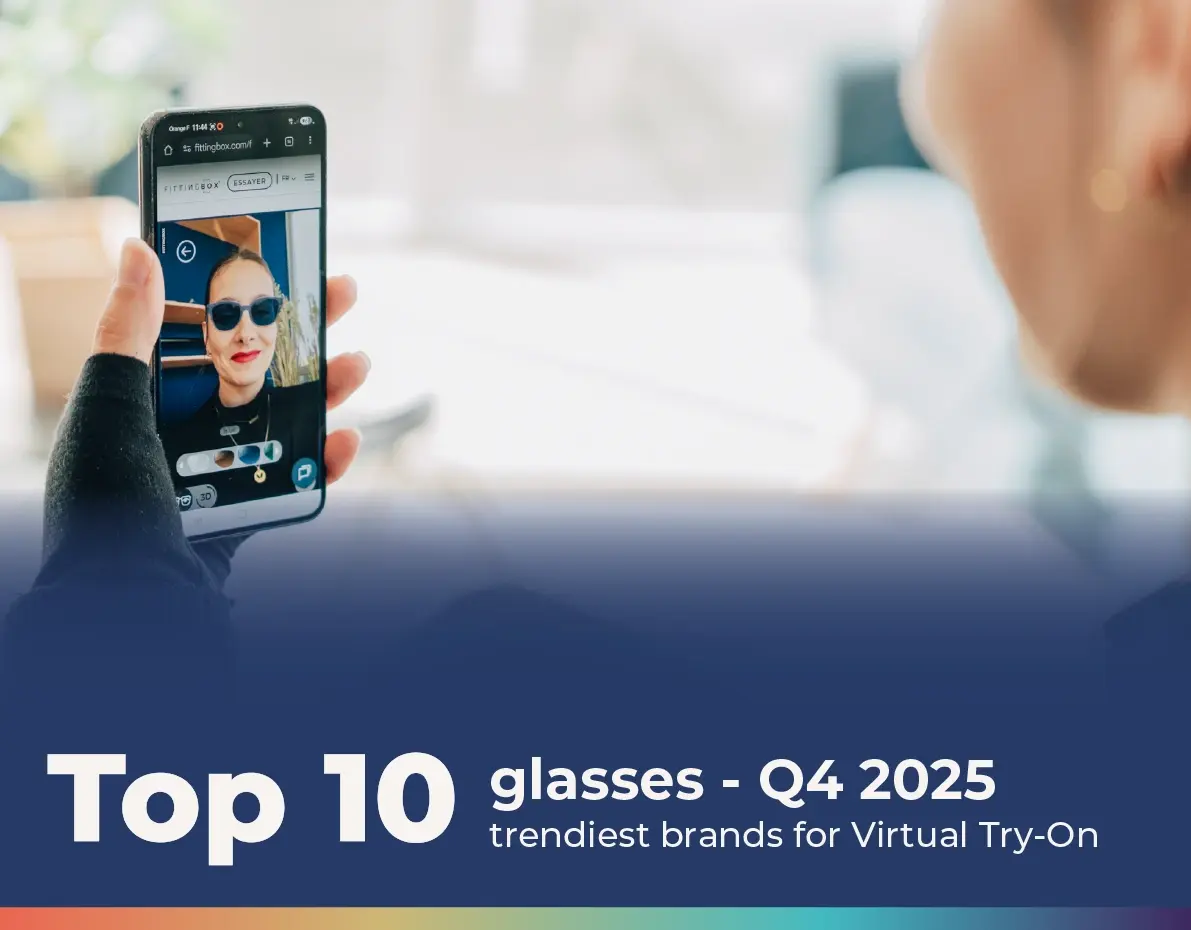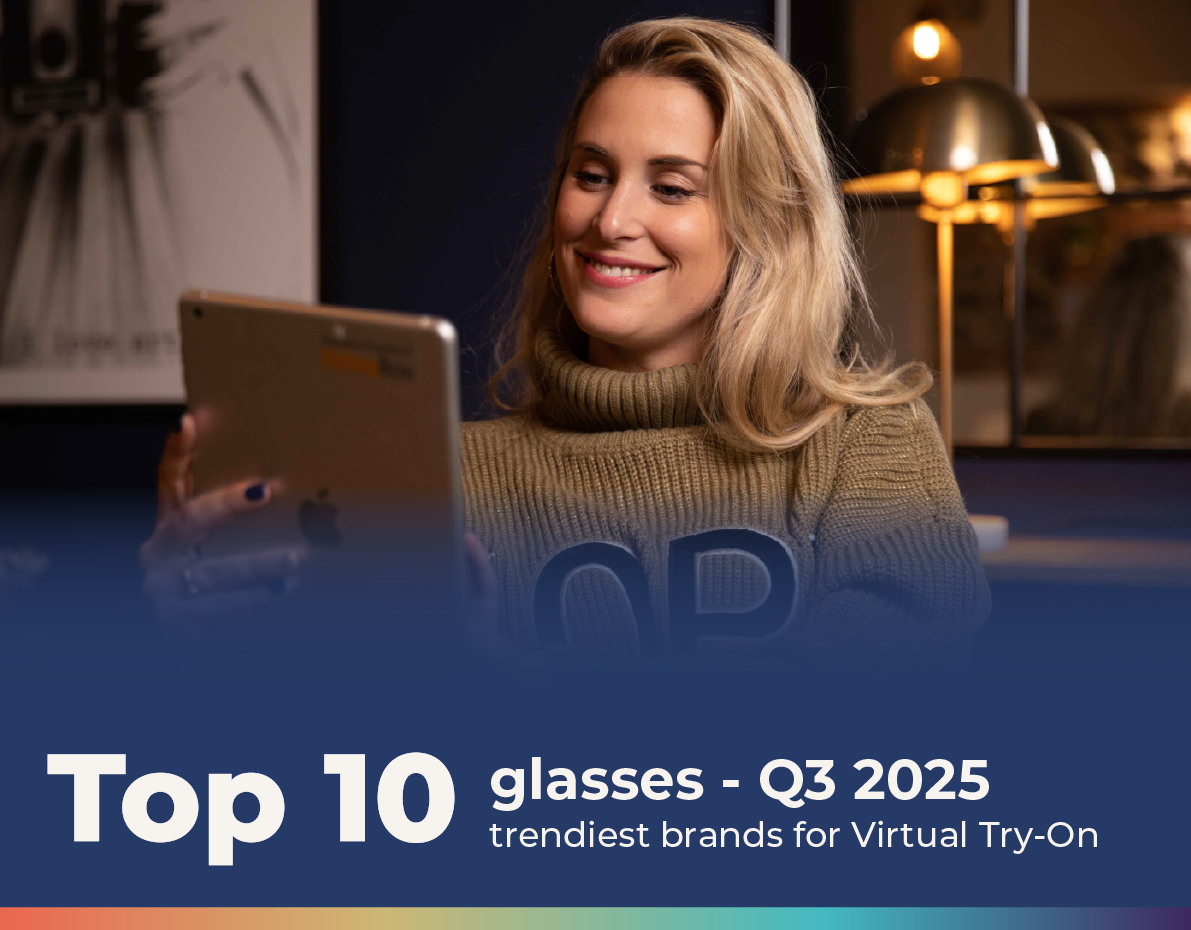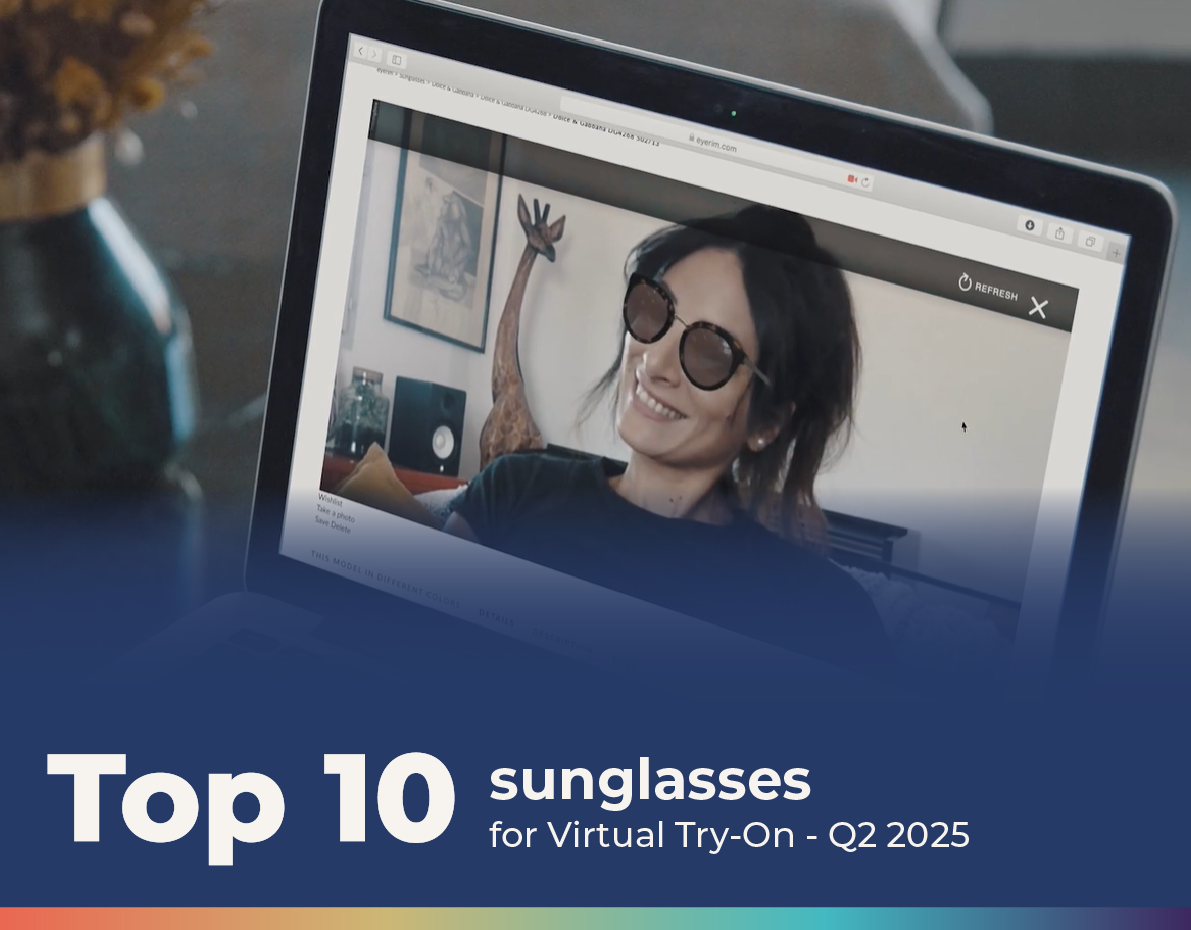
Digital Eyewear Catalog: where to find high quality frames photos?

"A picture is worth a 1000 words". Indeed, in e-commerce, pictures are everything!
Before the product description, it is the photo that will capture the user’s attention, encourage him to discover it and buy if it fits to his needs. Especially when it comes to fashion accessories like glasses or sunglasses.
However, the impact of your product photos is closely linked to their quality. Their publication must also respect the legal framework.
Here are the rules to follow to offer a convincing promotion/highlighting of your offer as an e-retailer.
PRODUCT IMAGE: FIGURES AND ADVICES
The product image is really important in the shopping path to purchase and influence your e-commerce website conversion rate.
According to the Olapic visual marketing platform, the average conversion rate is 4.6% when visitors view photos and 9.6% when they interact with them.
89% of buyers say that attractive photos can influence their purchasing decision. For more efficiency, the product sheet must present at least three photos showing the article from different angles, or even offer a 360° viewing module and a zoom. This is ever so true for glasses, which people are used to try on physically.
The files should not be too large so as not to slow the navigation speed: the JPEG format is therefore the most suitable. The visual will have more impact if it is placed on the left.


Finally, the visual quality must be irreproachable: according to e-commerce professionals, a bad visual cause sales to drop by 60%.
On the other hand, a quality visual is a factor of satisfaction and loyalty: 22% of returns of products purchased online are due to the difference between the photo and reality. Optimal image quality therefore stimulates sales and avoids disappointment.
Check out the following successful online eyewear stores who have followed the rules:
The Online optician Edel-optics
OPTIMIZE YOUR PRODUCT IMAGES
Today, both eyeglasses and sunglasses are available different shapes and details that make them original and appealing to buyers. An effective customer experience therefore involves showing the product in close-up, on a white background and from every angle: front, side, three quarters...
Let's not forget that glasses are made to be worn: like all fashion products, they will also be enhanced by photos showing VIPs, models or influencers who wear them proudly.

In still life or staged, image quality is a determining factor in the purchasing experience. Specific criteria have been established: the standard is 72 dpi. It means that, over a length of 2.54 cm, the number of points making up the image is 72.
In addition, the format must not exceed the width of your
e-commerce website. It is useless and not advisable to use larger images even if your website resizes them automatically, as this will increase the loading time of the page. Golden rule: the total weight of the web page presenting the product must not exceed 2MB. Optimizing your product images is therefore a real strategy that must nowadays take into account the development of purchase on smartphones.
Here is an example of what not to do: published on an e-commerce website, this sunglasses for children is presented in a tiny image, with a bad definition, under a single angle, with the impossibility of zooming on the photo. The online buyer has no idea what the product looks like and will not order it, even if its price of 8.65€ is attractive.

On the other hand, the luxury brand Oliver Peoples integrates all the codes of an appealing product presentation: each frame is photographed from all angles and presented via several visuals that can each be enlarged for an extremely precise vision of the details.

WHERE TO FIND IMAGES FOR YOUR Frames CATALOG?
FIND IMAGES FOR YOUR Frames CATALOG WITH GOOGLE SEARCH:
Google search images will probably allow you to quickly find the visuals you are looking for your online eyewear sales activity in just a few clicks. This search engine will take you to other e-commerce websites, brand websites, or social networks.
But be aware!
The use of this type of image produces involves a significant legal risk. Indeed, very few visuals that can be obtained in this way are free of rights for commercial use. Most of them are subject to managed rights, which means that their use is exclusively reserved for their publisher, or are limited to editorial use: they can only be used to illustrate a topic of current interest or public interest.
USE SOCIAL NETWORKS FOR IMAGES OF YOUR FRAMES CATALOG:
Even published on a social network, a visual remains the property of its author and can not be used without authorization.
However, it should be noted that both Facebook and Instagram grant themselves the right to use and market the content they contain: you can therefore ask them to buy the content you are interested in.
In any case, publishing a visual outside the legal framework amounts to copyright infringement: its withdrawal can be immediately requested by the natural or legal person who holds the rights, who can also initial a procedure claiming damages sometimes reaching several thousand euros.
USE THE JOBSON DATABASE FOR YOUR fRAMES VISUALS:
The Jobson database essentially meets the needs of the American market and is not necessarily adapted to the expectations of European buyers.
GET THE OPTIMAL PHOTO QUALITY FOR YOUR GLASSES
 For quality product images, you can take the picture yourself, keeping in mind that this is a specialized profession that cannot be improvised! To do this, you will need to train yourself and invest in professional equipment, for the shooting but also for the subsequent processing of the shots (retouching, trimming, etc.).
For quality product images, you can take the picture yourself, keeping in mind that this is a specialized profession that cannot be improvised! To do this, you will need to train yourself and invest in professional equipment, for the shooting but also for the subsequent processing of the shots (retouching, trimming, etc.).
The investment for a camera will be a minimum of 2000€, to which will be added the cost of the necessary IT solutions (Mac computer or PC and software), rarely less than 2000€ also.
Another solution is to go through a photo studio who will deliver visuals with an impeccable rendering, provided you give it a precise brief. The budget here is very variable. For example, a Parisian photographer charges an average of 2000 € for a pack of 100 retouched product photos, to which must be added various costs (delivering the glasses to his studio, etc).
Finally, you can turn to Fittingbox, a company specializing in interactive online sales tools for optical professionals.
Its Photo Studio solution provides you with HD photos for your product descriptions, with different customizable viewing angles and realistic rendering. It can also model your products in 3D.
FittingBox also provides you a complete database with ready-to use products images featuring eyeglasses and sunglasses from more than 1000 brands such as Hugo Boss, Chanel, Dior, Façonnable, Julbo, Polaroid, Ray-Ban, Calvin Klein, etc.
LET'S TALK
Request a demo, a quote or set up an appointment with one of our sales representatives.
CONTACT USUseful Links
Corporate
© FITTINGBOX 2025 • Terms of use • Privacy & Legal

